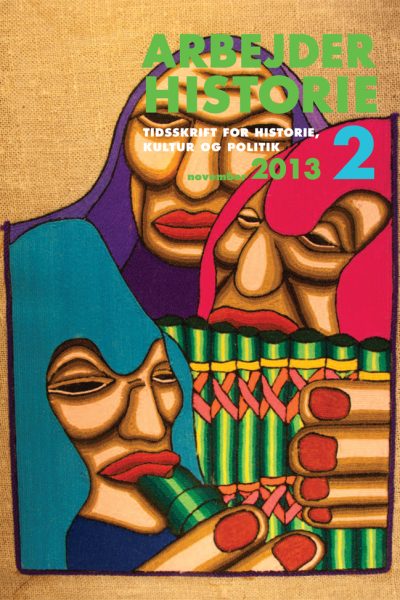Grænseløse arbejdere
En diskussion af identitet og selvbevidsthed med udgangspunkt i polske migrantarbejdere
DOI:
https://doi.org/10.7146/arbejderhistorie.vi2.145060Resumé
Niels Jul Nielsen: Workers without borders. Arbejderhistorie 2/2013, pp. 44-60.
In 2004 the EU expanded by taking on 10 new member countries, 8 of which were from the former Eastern Bloc. This meant that workers from countries with completely different traditions of how to attain and maintain influence concerning their working conditions – and with pay several times lower than in Denmark – gained access to the Danish labour market. This transnational encounter is a significant expression of a Europe of the 21st century, where the borders are open to the mobility of not just capital and commodities, but also to services and labour power.
The protectionism of national labour markets which prevailed throughout the Keynesian politics of much of the 20th century is, under the prevailing economic regime, replaced by cross-border activities that should promote competition in the neo-liberal spirit. Parallel with this the labour organizations still have difficulty in maintaining influence on the development and responding to the ongoing challenge from foreign workers and service providers. On the basis of an on-going research project of the current migration of Polish labour to Denmark (in the wake of the EU`s eastern expansion) there is a presentation, discussion and examination of how ´Polishness` comes into play in the meeting between bosses and workers, trade unions and employer organisations. In addition, there is
a consideration of the difficult issues of identity and self-awareness which are often raised in the general discussions on the lack of support for the trade unions and the failure to understand the Danish labour market system.
Downloads
Publiceret
Citation/Eksport
Nummer
Sektion
Licens
Copyright (c) 2013 SFAH og forfatterne

Dette værk er under følgende licens Creative Commons Navngivelse – Ikke-kommerciel – Ingen Bearbejdede Værker (by-nc-nd).


